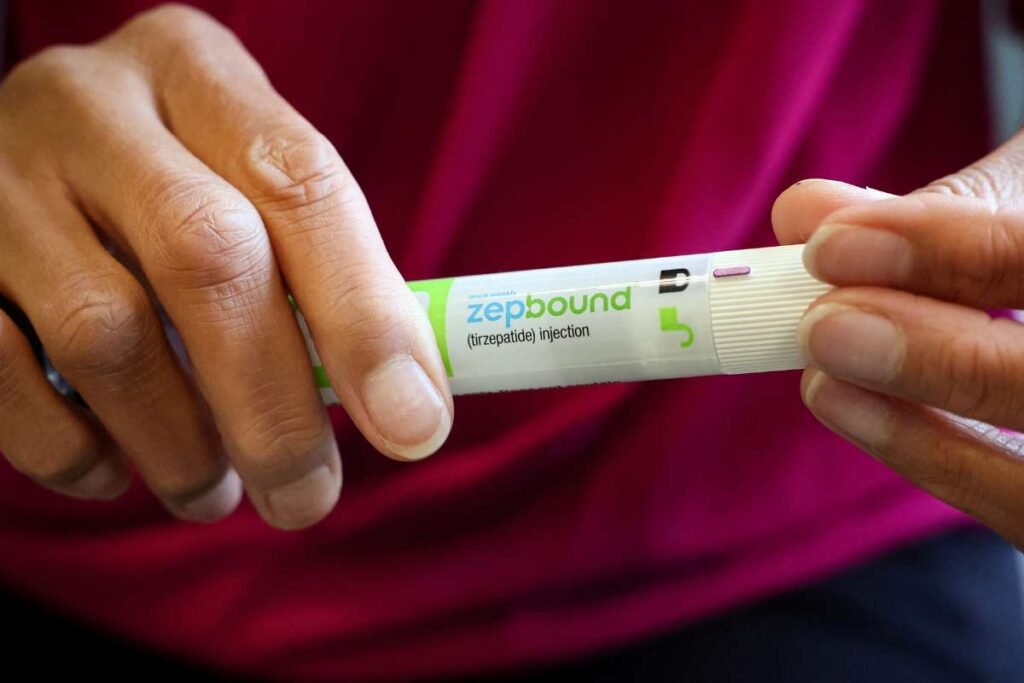Medicare drug plans have begun covering Eli Lilly’s blockbuster drug, Zepbound, for the sleep apnea treatment , a development that could provide broader access to the medication. Previously, Zepbound had not been covered by Medicare or many other insurance plans for weight loss purposes. However, the approval for its use in treating sleep apnea is expected to expand its accessibility.
Zepbound’s New Approval and Medicare Coverage for Sleep Apnea Treatment
The Centers for Medicare & Medicaid Services (CMS) confirmed that Medicare Part D drug plans will now cover Zepbound, following its approval by the U.S. Food and Drug Administration (FDA) for patients suffering from both obesity and moderate-to-severe OSA. The approval, which was granted on December 20, made Zepbound the first drug specifically authorized for treating the estimated 20 million people in the U.S. who suffer from these forms of sleep apnea, according to Eli Lilly.
While Zepbound’s approval for OSA offers a significant opportunity for wider usage, it is important to note that Medicare Part D plans can only cover obesity drugs if they are used for an FDA-approved medical purpose beyond just weight loss. As stated by a spokesperson for CMS, Zepbound’s coverage will follow the current Medicare Part D rules. Additionally, Part D plans may require prior authorization, meaning providers would need to obtain approval from insurers before the drug is prescribed.
Zepbound’s Rising Demand and Price Tag
The introduction of Zepbound has caused a significant surge in demand for the medication, especially in light of its potential to treat sleep apnea. Despite its steep price of around $1,000 per month without insurance, many individuals have shown a growing interest in the drug due to its potential benefits in managing OSA. Zepbound’s new approval under Medicare could make it more affordable for eligible individuals, reducing the financial burden for those with both obesity and sleep apnea.
Medicaid Coverage and State Variations
While Medicare Part D plans now cover Zepbound for sleep apnea, the situation is more complex for Medicaid. State Medicaid programs have varying policies depending on the specific condition for which Zepbound is prescribed, as well as whether Eli Lilly has signed a Medicaid drug rebate agreement. Under this agreement, manufacturers provide rebates to states in exchange for coverage of their medications. If Zepbound is prescribed for OSA, and Eli Lilly has entered the necessary rebate agreement, state Medicaid programs are required to cover it. However, if Zepbound is prescribed solely for weight loss, Medicaid programs are not obligated to provide coverage.
Broader Implications of Weight Loss Drug Coverage
The approval of Zepbound for sleep apnea treatment may open the door for other weight loss medications, such as Novo Nordisk’s Wegovy, to be covered under Medicare and Medicaid, provided they are used for other approved purposes, like lowering cardiovascular risks. While the coverage of these drugs offers hope to many, it is also part of a larger conversation regarding the cost of weight loss drugs.
The Biden administration recently proposed a rule that would allow Medicare and Medicaid to coverweight loss medications for obesity patients, a move that could benefit millions. However, the proposal is projected to cost taxpayers as much as $35 billion over the next decade, and it remains unclear whether the incoming administration under President-elect Donald Trump will continue to pursue this rule.
In conclusion, Sleep Apnea Treatment & Zepbound’s approval for treating OSA marks a significant milestone for both patients and the healthcare system. Medicare’s decision to cover the drug opens up new possibilities for individuals suffering from sleep apnea and obesity. While challenges remain with Medicaid coverage and the cost of treatment, this development is a step forward in providing better healthcare access to those in need.









